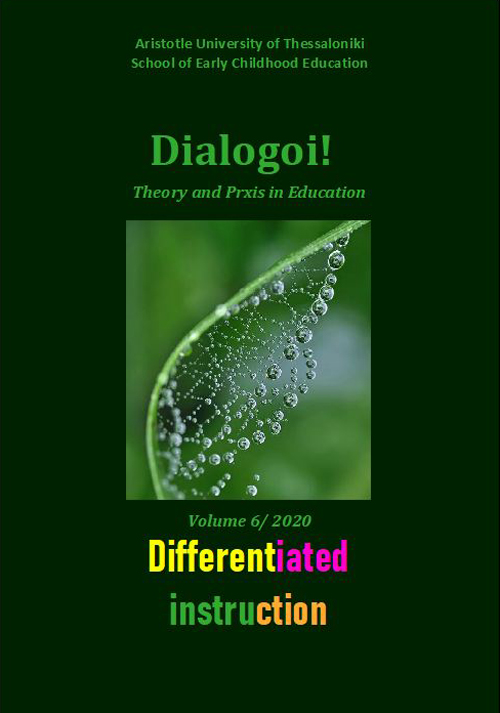Differentiation of teaching and learning: Difficulties and misconceptions

Abstract
This article investigates teachers’ misconceptions (National Research Council, 1997) about Differentiation of Teaching and Learning which affect teachers’ attitudes towards theory and the implementation of differentiation in classrooms of mixed readiness. The aim of the article is to answer the question usually addressed by teachers in all the levels of education referring to the difficulty to teach simultaneously students with different academic needs and to fulfil their different expectations. The question as such reveals implicit theories and misconceptions pertaining teachers’ understanding of differentiated instruction. Clarification of the concept and provisions for the participatory in-service teachers’ training trough Action research (i.e., Koutselini, 2008b, 2010) are provided.
Article Details
- How to Cite
-
Ιωαννίδου-Κουτσελίνη Μ. (2020). Differentiation of teaching and learning: Difficulties and misconceptions. Dialogoi! Theory and Praxis in Education, 6, 12–29. https://doi.org/10.12681/dial.25544
- Issue
- Vol. 6 (2020)
- Section
- Special Theme

This work is licensed under a Creative Commons Attribution-NonCommercial-ShareAlike 4.0 International License.
Authors who publish with this journal agree to the following terms:
- Authors retain copyright and grant the journal right of first publication with the work simultaneously licensed under a Creative Commons Attribution Non-Commercial License that allows others to share the work with an acknowledgement of the work's authorship and initial publication in this journal.
- Authors are able to enter into separate, additional contractual arrangements for the non-exclusive distribution of the journal's published version of the work (e.g. post it to an institutional repository or publish it in a book), with an acknowledgement of its initial publication in this journal.
- Authors are permitted and encouraged to post their work online (preferably in institutional repositories or on their website) prior to and during the submission process, as it can lead to productive exchanges, as well as earlier and greater citation of published work (See The Effect of Open Access).


